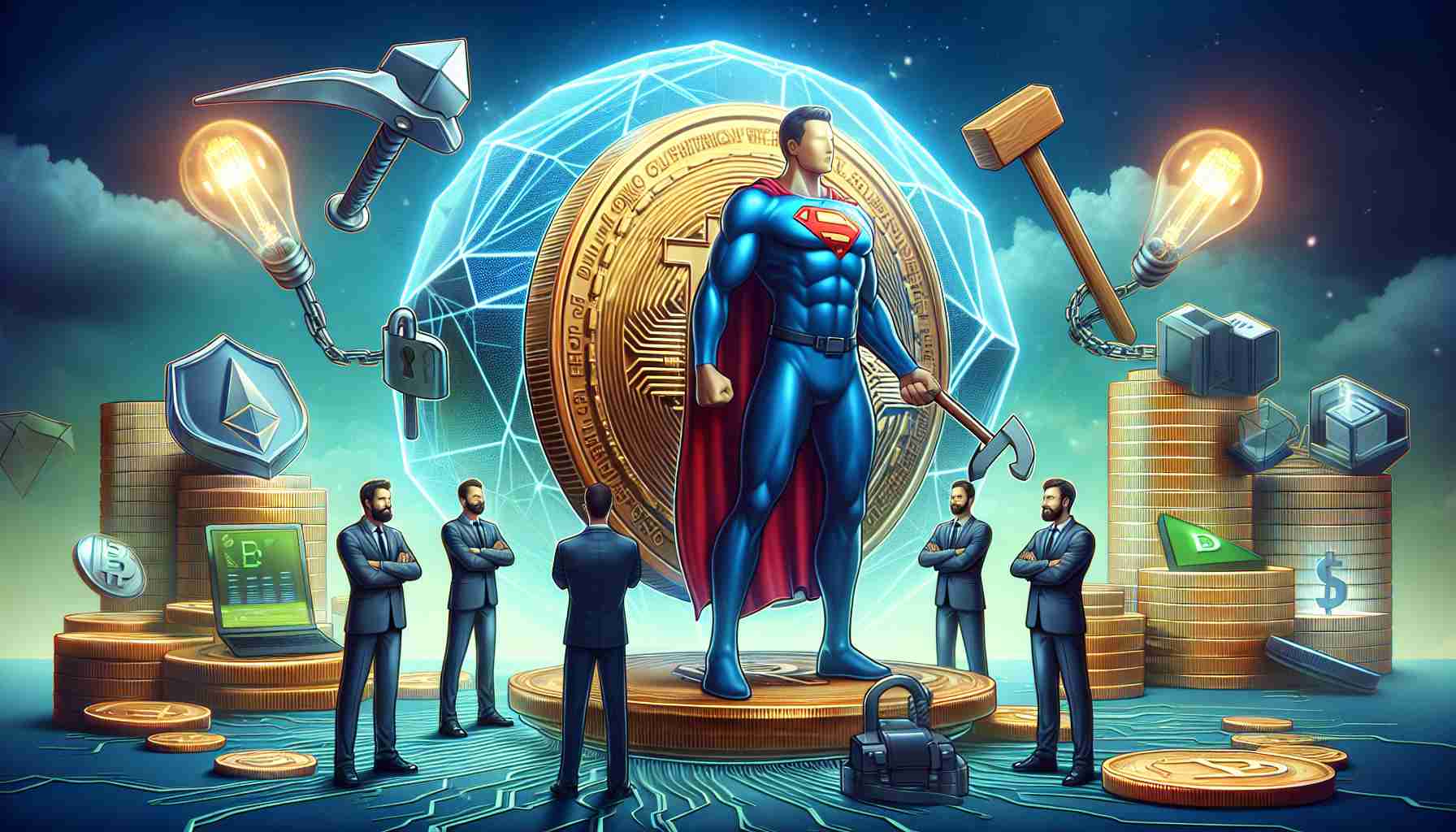Atari, a legendary name in gaming history, recently took a firm stance against a new cryptocurrency dubbed “RealPongCoin” or “$PONG.” On January 23, the company issued a press release clarifying that they have no ties to this crypto project, which is misusing Atari’s iconic PONG trademark without consent.
The press release emphasized that Atari distances itself from this venture, warning consumers about potential deception. The company’s legal team is currently evaluating options to combat the unauthorized use of its intellectual property. A brief investigation into RealPongCoin reveals its online presence is minimal at best, with a lackluster X account and an unconvincing website that hints at its dubious legitimacy.
Although the $PONG account includes disclaimers asserting its independence from Atari, such statements often lack credibility. Many cryptocurrency projects, particularly those under scrutiny, rely on similar disclaimers to avoid legal repercussions. Despite the chaos surrounding $PONG, Atari has made significant strides over recent years to distance itself from the fluctuating world of cryptocurrency.
Under the leadership of CEO Wade Rosen, Atari has shifted its focus back to retro gaming and preserving videogame history. This includes the acquisition of MobyGames, a key resource in gaming archives and remakes. As Atari steers clear of the crypto arena, their efforts to safeguard their brand and legacy against opportunistic scams remain a top priority.
The Ripple Effects of Atari’s Stance on Cryptocurrency
Atari’s recent repudiation of the dubious RealPongCoin not only underscores the importance of brand integrity in the digital age but also reflects broader societal implications regarding intellectual property and consumer awareness in the volatile cryptocurrency landscape. As gaming and crypto markets increasingly intersect, the protection of iconic brands becomes paramount, especially as scams proliferate, potentially damaging consumer trust.
The enterprise does not merely signify a protective reflex from a historic gaming giant; it highlights a significant cultural shift towards greater scrutiny and responsibility in the tech industry. As cryptocurrencies continue to gain traction, the potential for scams utilizing recognized trademarks remains a pressing concern. The public must cultivate a healthy skepticism toward projects that attempt to co-opt established names, not only to safeguard individual investments but to defend the integrity of entire market sectors.
Moreover, Atari’s refocus on retro gaming demonstrates a retreat from the chaos of cryptocurrencies toward more traditional forms of entertainment. This pivot could catalyze a broader trend of nostalgia-driven culture in gaming, encouraging developers to explore timeless classics rather than fleeting digital fads. This realignment may also inspire other brands to similarly assess their positions in relation to fast-evolving technology.
Furthermore, as organizations like Atari emphasize their legacy and heritage, they are contributing to a potentially more significant cultural valuation of intellectual property in the digital realm. The outcome of Atari’s legal actions against unauthorized crypto projects may set crucial precedents that shape industry standards and practices in future innovations.
Atari Takes a Stand: Protecting Its Legacy Against Cryptocurrency Exploitations
Atari’s Recent Actions Against RealPongCoin
Atari, an iconic name in the gaming world, has made headlines recently due to its proactive stance against the cryptocurrency known as “RealPongCoin” or “$PONG.” On January 23, the company issued a clear statement asserting that it has no affiliation with the cryptocurrency project that is allegedly misappropriating its beloved PONG trademark. This strong response underscores the importance Atari places on protecting its intellectual property in an ever-evolving digital landscape.
Understanding RealPongCoin
RealPongCoin presents itself as a new cryptocurrency, yet a brief analysis reveals a concerning lack of credibility. With minimal online presence, a sparse social media following, and an unconvincing website, it raises red flags for potential investors and fans alike. The $PONG account, while offering disclaimers about its independence from Atari, relies on vague assertions often seen in dubious cryptocurrency ventures that aim to sidestep legal issues.
Legal Actions and Consumer Warnings
In its press release, Atari emphasized that it is actively exploring legal options to address the unauthorized use of its trademark. The company’s legal team is thoroughly examining the situation to protect its brand from potential deception that could mislead fans and investors. This proactive approach reflects Atari’s commitment to maintaining its integrity and the trust of its consumer base.
The Shift Towards Retro Gaming and Preservation
Under the leadership of CEO Wade Rosen, Atari has strategically pivoted to focus on retro gaming and the preservation of video game history. This shift has seen the company acquire influential gaming resources, such as MobyGames, which serves as a vital repository for gaming archives and remakes. This move not only preserves gaming history but also showcases Atari’s dedication to its roots.
Trends in the Cryptocurrency Sphere
The rise of cryptocurrencies has seen a mixture of innovation and exploitation. While many legitimate projects have emerged, the landscape is also saturated with scams and unverified ventures that misappropriate established brands. Atari’s proactive measures highlight a growing trend among traditional companies to guard against the misuse of their names and intellectual properties in the cryptocurrency domain.
Pros and Cons of Atari’s Position
Pros:
– Strong legal backing to protect intellectual property.
– Focus on retro gaming fosters nostalgia and a loyal fan base.
– Acquisition of resources like MobyGames enhances brand credibility.
Cons:
– Association with cryptocurrency could have offered new revenue streams.
– Ignoring modern digital trends may alienate younger generations of gamers.
Conclusion
Atari’s firm stance against RealPongCoin not only protects its trademark but also signals a broader effort within the gaming industry to mitigate risks associated with unfounded cryptocurrency projects. As the digital landscape continues to evolve, Atari is committed to upholding its legacy while navigating the complexities of modern gaming and technology.
For more on Atari’s initiatives and gaming history, visit Atari’s official website.
